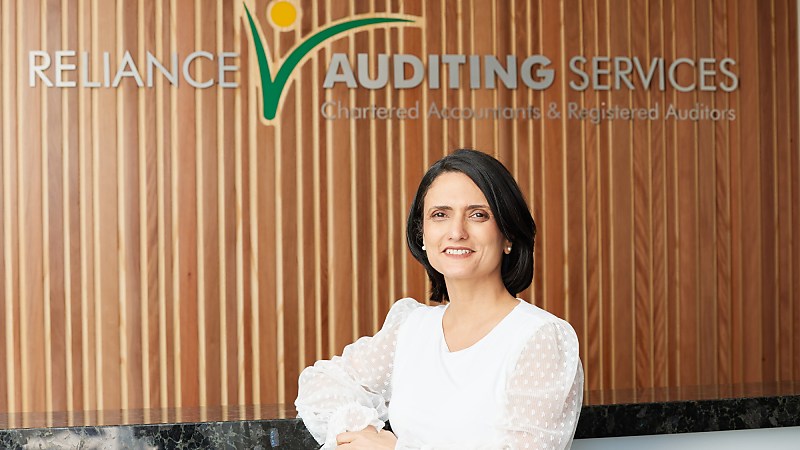Tax reform agenda eyeing other structures: auditor
The “writing is on the wall” for the government to move on taxing other structures, with the Treasurer’s refusal to reconsider the tax on unrealised capital gains or increase GST, a leading auditor has said.
Naz Randeria, director of Reliance Auditing Services, has long been an opponent of the $3 million super tax, and says Jim Chalmer’s reluctance to consider raising the GST as indicated in his National Press Club speech on Wednesday in favour of other tax reform strategies is setting the stage for the government to look to taxing other structures within the system.
It was reported in The Australian Financial Review on Friday that higher taxes on family trusts would likely be proposed as a way to help shore up the budget.
Chalmers indicated that there are a few no-go areas regarding tax reform, including inheritance taxes or changing the arrangements for the family home.
“But what I’ve tried to do and what I tried to say in the speech is if we spend all of our time ruling things in or ruling things out, I think that has a corrosive impact on the nature of our national policy debate, and I don’t want to artificially limit the things that people bring to the roundtable discussion,” he said.
Randeria said, in her opinion, the solution isn’t to continue squeezing more out of income tax but rather a smarter, fairer, and more sustainable approach.
“That solution lies in indirect taxation, especially the Goods and Services Tax,” she said.
“There’s only so much you can tax a population, especially when our population growth remains relatively modest. Income tax has its limits. It’s tied to wages, employment levels, and demographic trends. But GST? It’s tied to consumption. It has an ever-expanding base because it's applied every time someone buys a good or service. It's a tax on movement, on activity — and that's what we should be encouraging.”
When questioned about the possibility of raising GST in the tax reform roundtable that is set to be established, the Treasurer said he has “historically” been opposed to the idea.
“I think it’s hard to adequately compensate people and I think often an increase in the GST is spent three or four times over by the time people are finished with all the things they want to try and do with it,” he said.
“I suspect the states will have a view about the GST. It’s not a view I’ve been attracted to historically, but I’m going to try not to get in the process of shooting ideas between now and the round table. My view has not changed on all of the other times that I’ve been asked about it.”
Randeria continued that a broader, higher GST, offset by lower income tax, could be a win-win.
“It’s revenue-positive, economically stimulative, and socially progressive – if implemented with the right support mechanisms for lower-income households. Most importantly, it encourages productivity, not penalises it,” she said.
“What also drives me to support GST reform is the dangerous path we're heading down with policies like Division 296. This proposed tax on super balances over $3 million is not only administratively complex, but it also undermines trust in our retirement system.
“It discourages people from saving and investing for their future, exactly the kind of long-term behaviour we should be promoting. These sorts of desperate tax grabs are a symptom of a system trying to do too much with too little.”
She added that in 2023, the International Monetary Fund recommended that Australia broaden and increase the GST, highlighting it as a growth-friendly alternative to higher income taxes.
“The rationale is clear.”
“What we need now is courage – courage from policymakers to move beyond populist promises and short-term politics and instead look at long-term prosperity. A shift in tax philosophy from penalising income to taxing consumption, which is the step forward we desperately need.”
Her views are supported by AMP chief economist, Shane Oliver, who said one of the major problems with Australia’s tax system is its reliance on income tax, as opposed to indirect tax like a GST.
“The average OECD country gets 34 per cent of its tax revenue from income tax, either on companies or individuals, whereas in Australia, it's over 60 per cent; this has big problems,” Oliver said.
“It's a disincentive for companies to invest, it's a disincentive for individuals to work, and it also means an increasing burden on younger Australians to fund the retirement needs of an ageing population.”
He said the second issue with the Australian tax system is that it's highly progressive, and someone paying the top marginal tax rate is earning just two times the average weekly earnings in Australia.
“You go to the US, it's about six times average weekly earnings before you pay that top marginal tax rate. If you get a career, it's about 20 times average weekly earnings before you start paying that top rate.”
“The problem with that is it creates a disincentive, again, to work. The only problem [with tax reform] is that politicians don't want to do it because there's no votes in it. They don't want to explain what is a complicated issue.
“It's quite easy to run scare campaigns. We really need politicians to get out there and tell the Australian population why we fundamentally need tax reform and if we don't do it, it's going to cost us in the long term. It's going to lower economic growth and lower living standards.”


